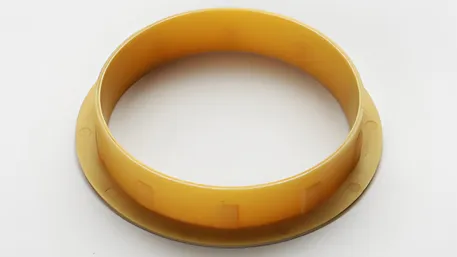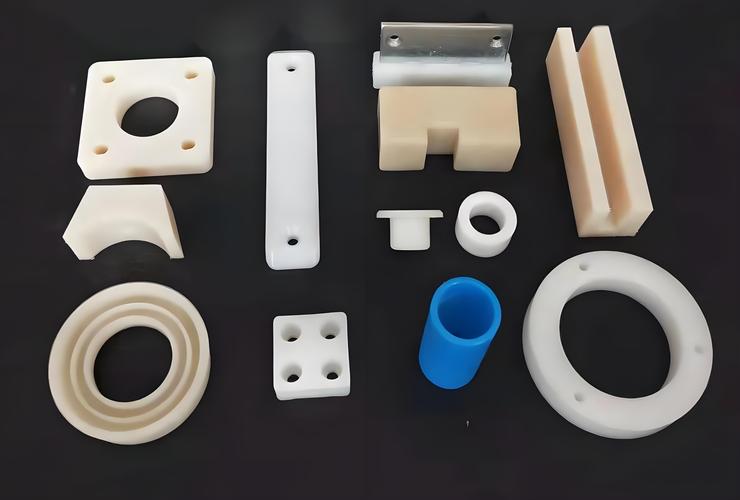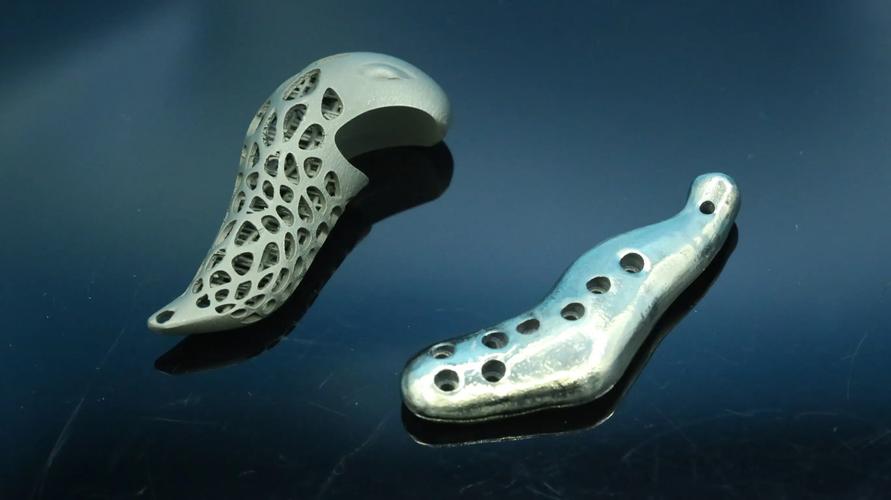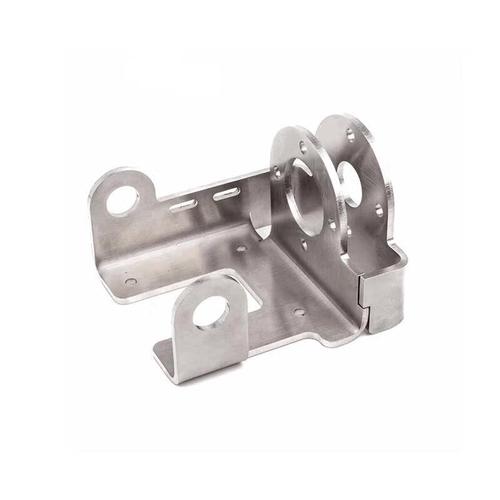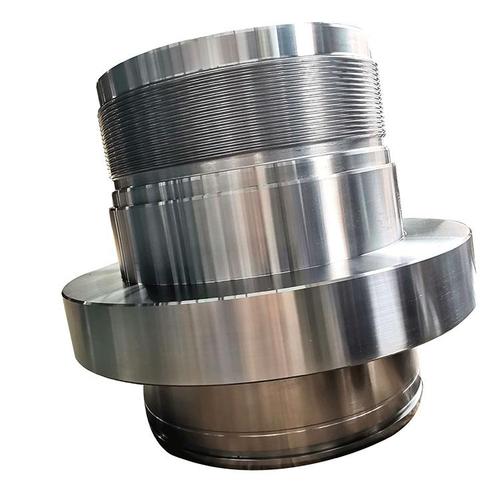CNC (Computer Numerical Control) screw parts are an indispensable part of modern manufacturing industry, they are produced by high-precision CNC machining technology, widely used in aerospace, automotive, electronics, machinery and equipment, etc. CNC screw parts, with its high precision, high efficiency, and customizability, meet the demand for precision connectors from different industry’s demand for precision connectors.
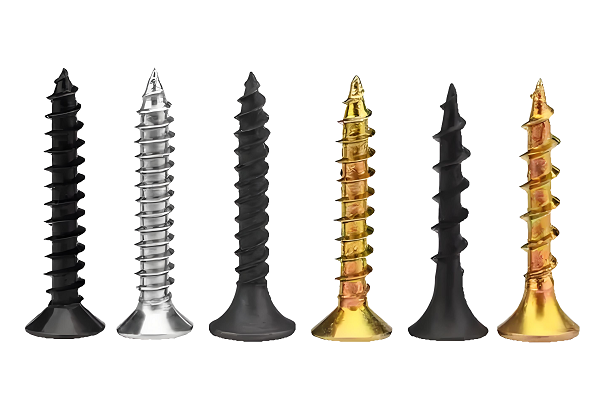
1. CNC screw production process
1.1 Design: According to customer needs or product design requirements, use CAD (computer-aided design) software to draw a three-dimensional model of the screw, and determine the relevant parameters, such as diameter, length, thread type, etc..
1.2 Programming: Import the CAD model into CAM (Computer Aided Manufacturing) software, carry out machining path planning and programming, and generate G code recognizable by CNC machine tools.
1.3 Material Preparation: Select suitable raw materials, such as stainless steel, aluminum alloy, copper, etc., according to the design requirements, and carry out the necessary pre-treatment, such as cutting the blank into the right size.
1.4 Machining: Clamp the blank on the CNC machine, and carry out automatic machining according to the programmed G-code, including turning, milling, drilling, tapping and other processes.
1.5 Inspection: Use measuring tools to inspect the size, shape and thread quality of the finished screws to ensure that they meet the design requirements.
1.6 Surface treatment: according to the need for screws surface treatment, such as galvanized, nickel-plated, sandblasted, etc., in order to improve its corrosion resistance and appearance quality.
1.7 Packing and shipping: Pack the qualified screws and ship them according to customers’ requirements.
2. CNC screw processing steps
2.1 Clamping blanks: Clamp the prepared blanks on the working table of CNC machine, make sure the clamping is firm and the position is accurate.
2.2 Rough machining: first rough machining, remove most of the residual quantity, to lay the foundation for the subsequent finishing.
2.3 Finishing: Turning, milling and other finishing processes to ensure the dimensional accuracy and surface roughness of the screw.
2.4 Tapping: Use the tap to carry out tapping operations to form threads that meet the requirements.
2.5 Chamfering and deburring: Chamfer the corners of the screws and remove the burrs generated in the process.
2.6 Cleaning and drying: use cleaning agent to clean the screw surface of oil and impurities, and drying treatment.
3. Customized CNC screw service
3.1 Personalized design: Provide personalized design service according to customers’ needs to meet special shape, size and performance requirements.
3.2 Material selection: provide a variety of material options, including stainless steel, aluminum alloy, copper, etc., to meet the needs of different application scenarios.
3.3 Rapid prototyping: provide rapid prototyping services to shorten the product development cycle.
3.4 Mass production: with large-scale production capacity to ensure on-time and on-quantity delivery of products.
3.5 After-sales support: provide perfect after-sales support, including product use guidance, troubleshooting and so on.
4. CNC screw processing materials
Material: stainless steel (such as 304, 316), aluminum alloy (such as 6061, 7075), copper (such as brass, copper) and so on.
Hardness: stainless steel (HRC 25-35), aluminum alloy (HB 60-120), copper (HB 50-80). Note: The specific hardness value depends on the type of material and heat treatment process.
Density: stainless steel (about 7.93 g/cm³), aluminum alloy (about 2.7 g/cm³), copper (about 8.9 g/cm³).
Flexibility: Flexibility is not usually measured directly by numerical values, but can be assessed indirectly by the ductility and toughness of the material. Stainless steel and copper have good ductility, while aluminum alloys have good toughness.
Role: As connectors, they play a role in fastening and connecting in mechanical equipment.
Characteristics:
High precision: CNC machining ensures the high precision size and shape of the screws.
Corrosion resistance: stainless steel screws have excellent corrosion resistance.
Lightweight: aluminum alloy screws are lightweight, suitable for occasions where weight is required.
Conductivity: Copper screws have good electrical conductivity and are suitable for electrical connections.
Application areas: widely used in aerospace, automobile manufacturing, electronic equipment, mechanical equipment and other fields.
5. CNC screw machining process
Three-axis linkage processing: Utilizing the three-axis linkage function of CNC machine tools to realize the processing of complex shapes and threads.
High-speed cutting: using high-speed cutting technology to improve processing efficiency and surface quality.
Precision Measurement: Real-time monitoring and adjustment of dimensions and shapes during machining using high-precision measuring tools.
Automatic tool change: For multi-station machining, adopt automatic tool change system to improve machining efficiency.
6. CNC screw production equipment
CNC lathe: with high-precision machining capability, applicable to the machining of various shaft parts.
CNC milling machine: capable of processing flat, curved surface and complex shapes, suitable for milling and drilling of screws.
Tapping machine: specialized in thread processing to ensure the precision and quality of threads.
Measuring equipment: including projectors, CMMs, etc. for size and shape inspection during machining.
Customized CNC Screw Parts Service FAQ
Q: How long does it take to customize CNC screws?
A: The time for customized CNC screws depends on the design complexity, production quantity and production scheduling, usually within 7-15 working days.
Q: How do I determine the material for my CNC screws?
A: The choice of material depends on the application scenario and performance requirements, such as corrosion resistance, weight and strength. We will recommend suitable materials after communicating with customers.
Q: How to ensure the machining accuracy of CNC screws?
A: We use high-precision CNC machine tools and precision measuring equipment to monitor and adjust the size and shape in real time during the machining process to ensure the machining accuracy.
Q: Do you support small batch customization?
A: Yes, we support small-lot customization of CNC screws to meet the diversified needs of customers.
Q: What about after-sales service?
A: We provide perfect after-sales service, including product use guidance, troubleshooting and maintenance, etc., to ensure that customers have no worries in the process of use.

